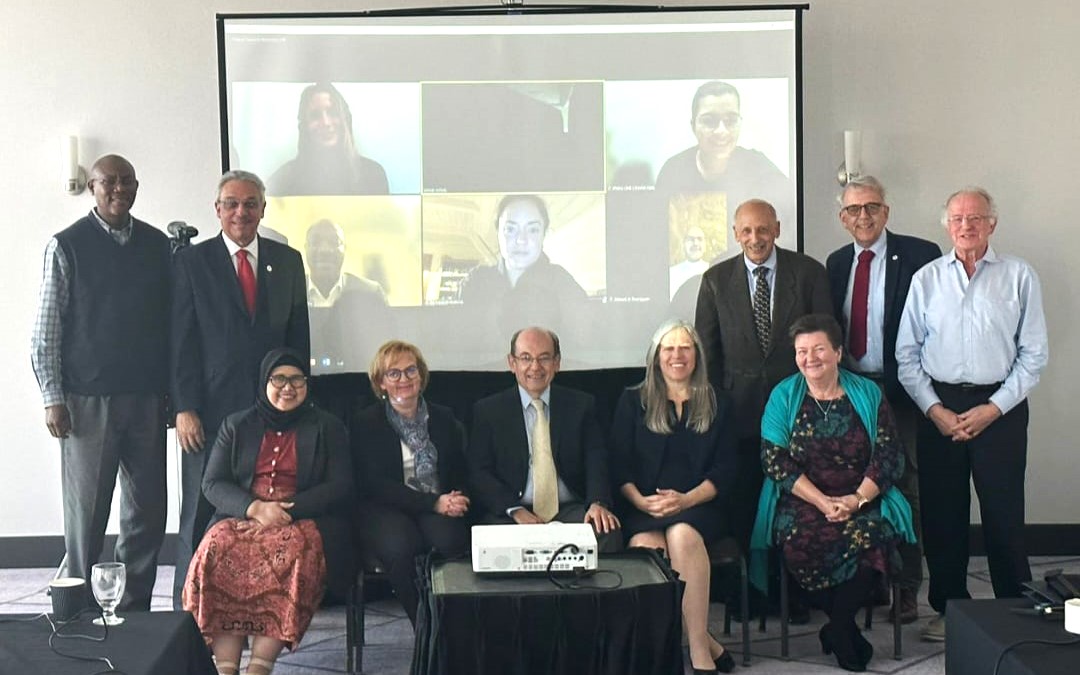QUÉBEC CITY, QUÉBEC – April 15, 2023 – The Association of Faculties of Medicine of Canada (AFMC) launched the Academic Health Institutions’ Declaration on Planetary Health today at the International Congress on Academic Medicine (ICAM). AFMC is encouraging academic health institutions to endorse the Declaration, which declares the health of the planet a Code Red emergency and calls for immediate implementation of planetary health education and research, and the transition to climate-resilient and low-carbon health systems to build a healthy, sustainable, and just future for all.
Climate change is recognized as the greatest threat to health in the twenty-first century. Academic health institutions have a distinct responsibility to educate, train, and prepare health professionals to respond to and advocate for the health needs of society, from the individual to the populational level and from a local to a global level.
The declaration, which was developed by Canadian and international medical education and planetary health experts, calls on all academic health institutions to take immediate action to halt both the negative impact of their activities on the planet’s natural systems, and to institute adaptive and regenerative measures, including through advocacy. The declaration details an action plan for academic health institutions to advance planetary health education and research by actively addressing environmental, social, and structural determinants of health. Further, the declaration adopts a community-based approach and calls for signatories to advocate for investments in public health, primary care, and health system climate resilience.
All 17 faculties of medicine in Canada have endorsed the Declaration.
Quotes
“Faculties of Medicine have a social and environmental accountability mandate to educate future and practicing health professionals and conduct research that will improve the health of the populations they serve. Considerable evidence indicates that climate change is already causing human morbidity and mortality in complex and interdependent ways, disproportionately affecting marginalized populations including people living in poverty, racialized people, Indigenous Peoples, elderly, children, and women around the world.”
Dr. Julien Poitras, Chair of the AFMC Standing Committee on Social Accountability and Dean of Medicine, Université Laval
“We are pleased to report that every Faculty of Medicine in Canada has endorsed this declaration. Our hope is that other institutions will also recognize the important role they play in planetary health and take immediate action by endorsing the declaration”.
Dr. Geneviève Moineau, AFMC President and CEO


